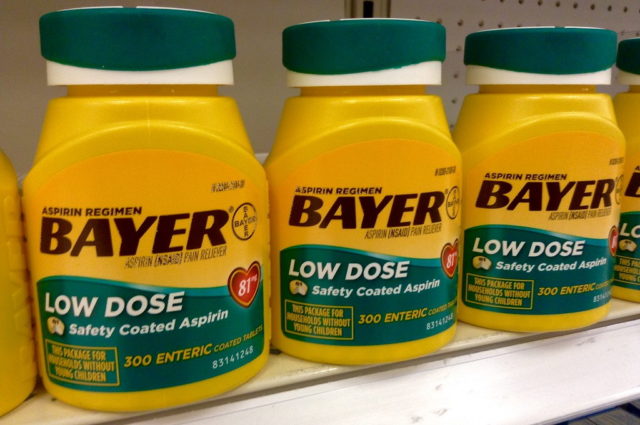
New research suggests that many adults in the United States who take low dose aspirin daily to prevent heart disease could be at risk of harm.
The individuals potentially at risk include older adults and those who have or have had peptic ulcers.
Peptic ulcers are open sores that can occur in the stomach and small intestine. These painful lesions, which are prone to bleeding, affect about 10% of people.
The recent study suggests that close to 6.6 million U.S. adults are taking aspirin every day to protect against heart disease without seeking medical advice.
Researchers at Beth Israel Deaconess Medical Center (BIDMC) and Harvard Medical School, both in Boston, MA, report these findings in a recent Annals of Internal Medicine paper.
The lead author is Dr. Colin W. O’Brien, who is a fellow at Harvard Medical School and also a senior resident in internal medicine at BIDMC.
He and his colleagues note that a key message of their findings is that people without a history of cardiovascular disease who are taking aspirin daily to prevent heart attack or stroke should talk to their doctor about whether it is wise for them to continue.
Revised guidelines
Aspirin works by reducing the stickiness of blood platelets and, therefore, decreasing their ability to clot. However, this same property also raises the risk of bleeding.
Until recently, the medical community supported the daily use of low dose aspirin for the prevention of cardiovascular events — such as heart attack and stroke — by those at higher risk.
The view was that, for those individuals, the benefits outweighed the risks.
However, the publication of three major studies in 2018 revealed that for many people, the dangers of internal bleeding offset the few benefits of aspirin use.
Those findings prompted the American Heart Association and the American College of Cardiology to revise the guidelines on aspirin use for the prevention of cardiovascular disease.












